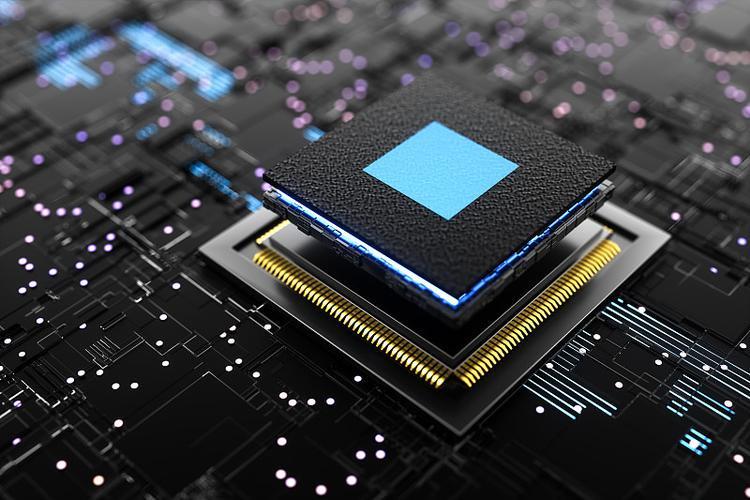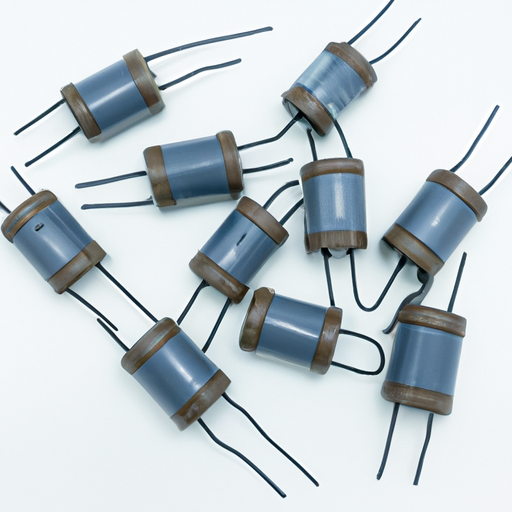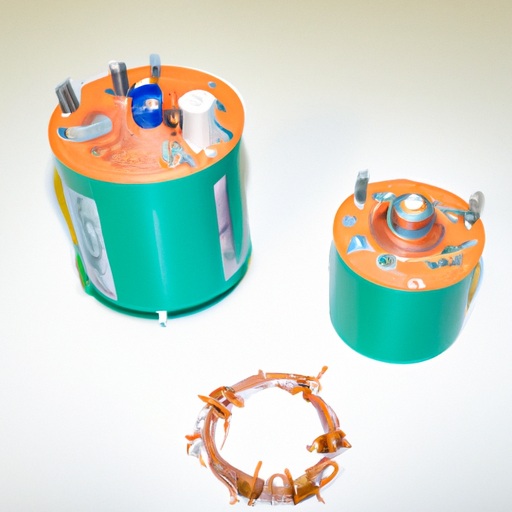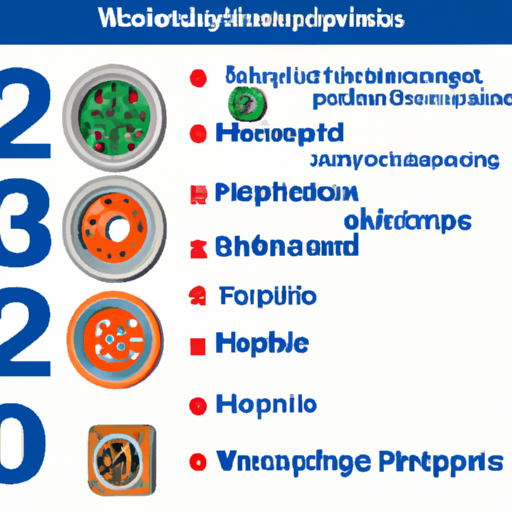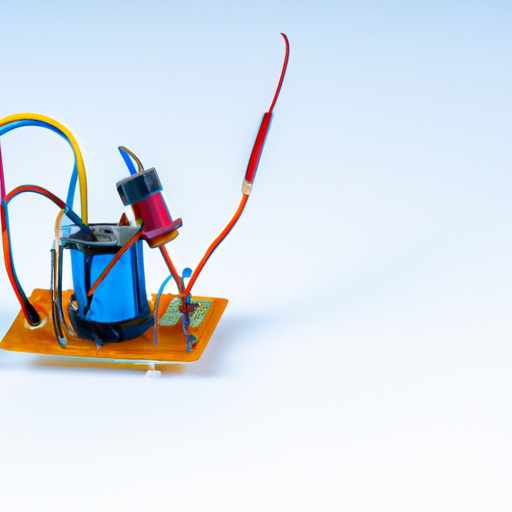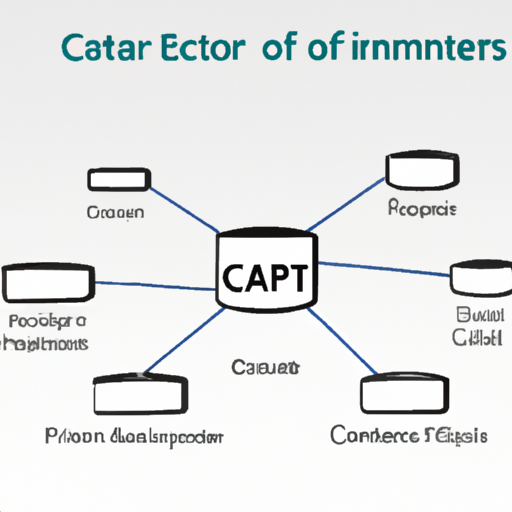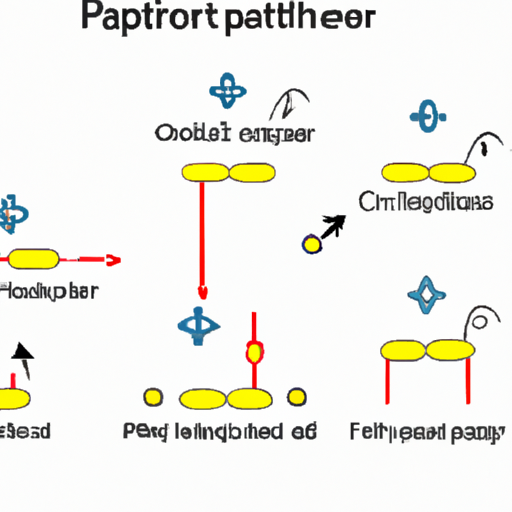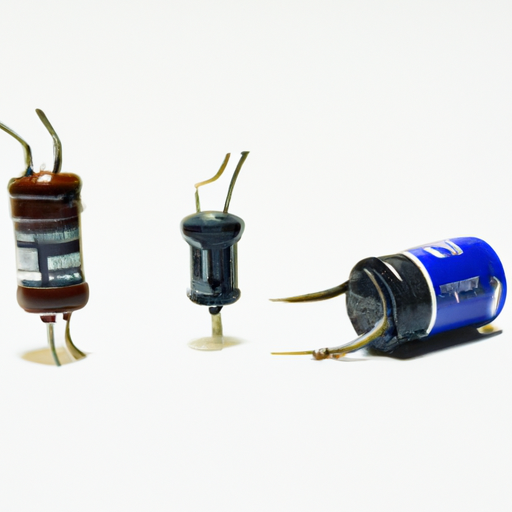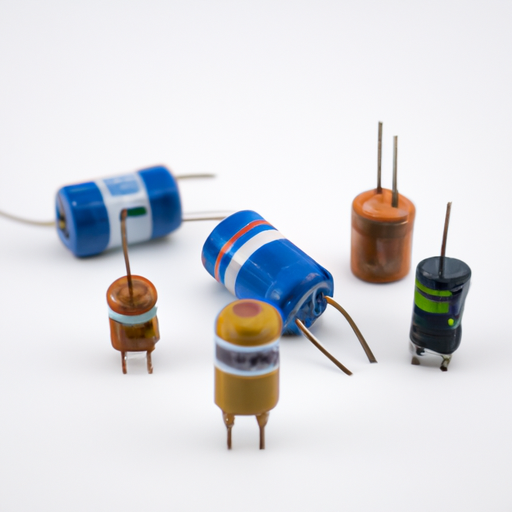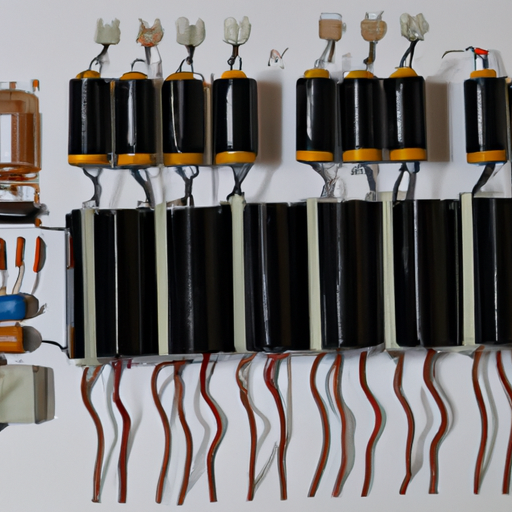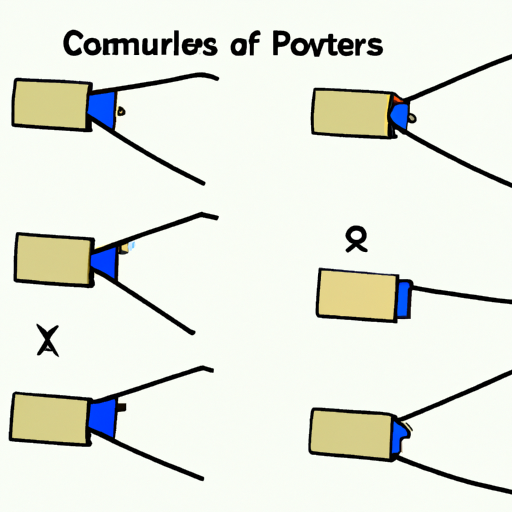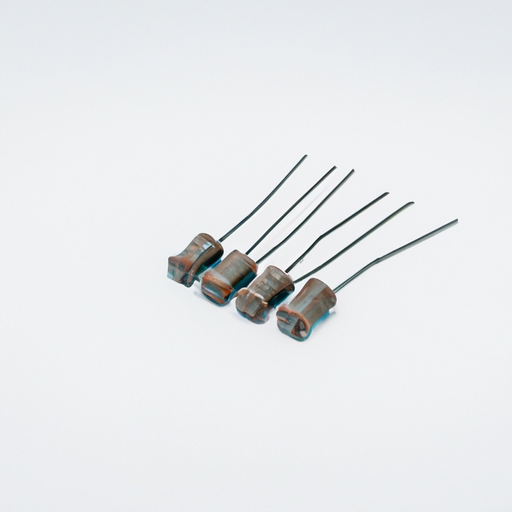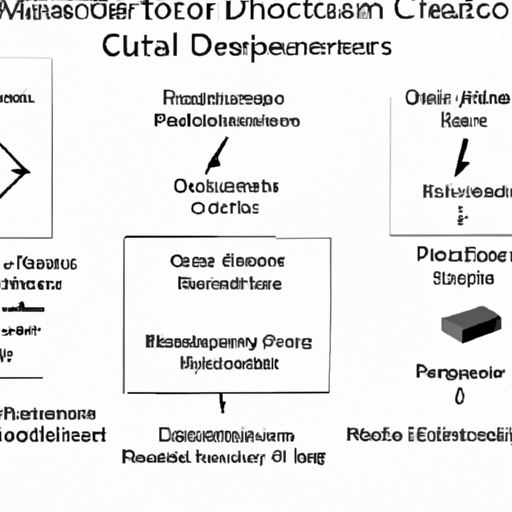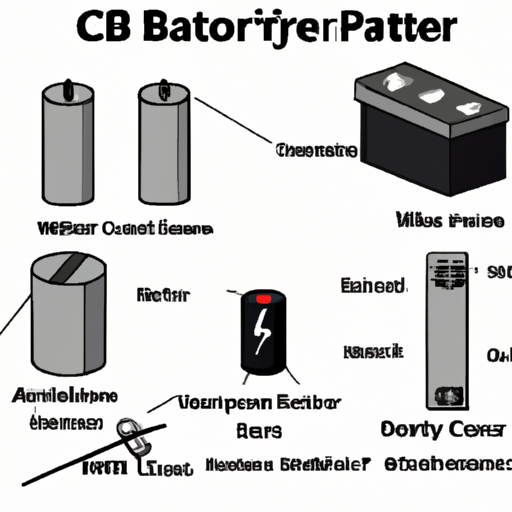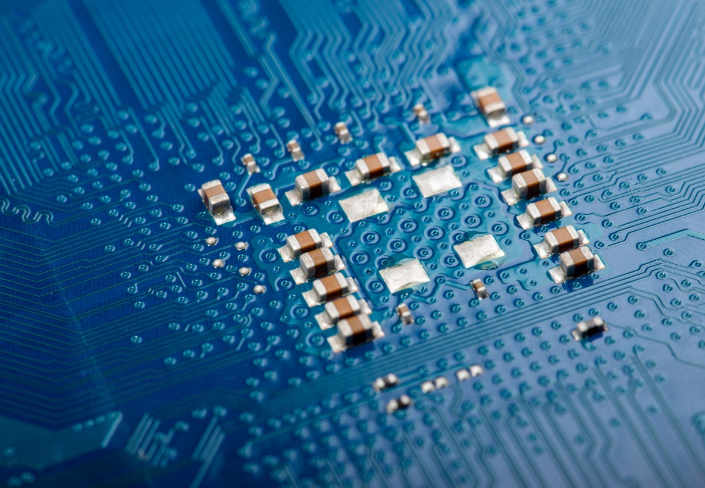What are the development trends in the discrete semiconductor product industry?
Analysis of Development Trends in the Discrete Semiconductor Products Industry IntroductionDiscrete semiconductor products refer to semiconductor devices that exist independently in electronic circuits, such as diodes, transistors, and field-effect transistors. These devices play a crucial role in the modern electronics industry and are widely used in consumer electronics, automotive electronics, industrial control, and other fields. With the continuous advancement of technology and changes in market demand, the discrete semiconductor products industry is undergoing profound changes. This article will explore the main development trends in the discrete semiconductor products industry, including changes in market demand, technological innovation and progress, changes in market competition landscape, the impact of policies and environmental factors, and future prospects.I. Changes in Market Demand1. Rapid Development of Consumer ElectronicsIn recent years, the rapid development of consumer electronics has driven the demand for discrete semiconductors. The proliferation of smart devices such as smartphones, tablets, etc., has led to an increasing demand for high-performance and high-efficiency discrete devices. Especially with the promotion of 5G technology, the market's demand for high-frequency and high-efficiency discrete devices has become more urgent. The construction of 5G networks requires a large number of base stations and network equipment, many of which use discrete semiconductor devices to achieve faster data transmission and lower energy consumption.2. Rise of Automotive ElectronicsThe rapid development of the automotive electronics industry, especially the rise of electric vehicles and autonomous driving technology, has further driven the demand for discrete semiconductors. Electric vehicles require efficient power management and power control systems, and these systems use a large number of discrete semiconductor devices. Additionally, with the increasing requirements for safety and reliability, the market's demand for high-performance discrete devices is also continuously increasing. The realization of autonomous driving technology requires complex sensors and control systems, which also rely on high-performance discrete semiconductor products.3. Industrial Automation and IoTUnder the background of Industry 4.0, the rise of smart manufacturing has led to an increasing demand for discrete semiconductors. Industrial automation equipment requires efficient and reliable discrete devices to achieve precise control and data acquisition. At the same time, the popularity of IoT devices has driven the development of low-power, high-integration discrete devices. As more and more devices connect to the internet, the market's demand for discrete semiconductor products that support wireless communication and data processing is also continuously rising.II. Technological Innovation and Progress1. Advancement in Material TechnologyTechnological innovation in discrete semiconductor products mainly focuses on the advancement of material technology. In recent years, the application of new materials such as silicon carbide (SiC) and gallium nitride (GaN) has been increasing. These new materials have higher thermal conductivity and better electrical properties, allowing discrete devices to operate in high-temperature, high-pressure, and high-frequency environments, greatly enhancing the performance of discrete devices. In addition, improvements and optimizations of traditional silicon materials are also ongoing to meet the growing market demands.2. Enhancement of Manufacturing ProcessesWith the development of nanometer-scale process technology, the manufacturing processes of discrete semiconductors are continuously improving. The introduction of new automated production lines of the next generation has not only increased production efficiency but also improved product consistency and reliability. These technological advancements enable discrete semiconductor products to achieve higher performance in smaller sizes, meeting the market's demands for miniaturization and high performance.3. Integration and Modular DesignThe trend of discrete devices towards integrated circuits (ICs) is becoming more apparent. Integrated design can integrate multiple functions onto a single chip, reducing system complexity and costs. At the same time, modular design enhances system flexibility and maintainability, allowing products to adapt more quickly to market changes.III. Changes in Market Competition Landscape1. Intensified Global CompetitionWith the rise of emerging markets, competition in the discrete semiconductor industry has become increasingly fierce. Major manufacturers in traditional markets face challenges from emerging market enterprises, which gradually occupy a portion of the market share with low costs and flexible market strategies. Additionally, the trend of mergers and collaborations among major manufacturers is intensifying, as companies integrate resources, technologies, and market channels to enhance their competitiveness.2. Emergence of Small and Medium EnterprisesIn the discrete semiconductor industry, innovative small and medium enterprises are showing strong competitiveness. These enterprises can quickly respond to market demands in specific segments through technological innovation and flexible market strategies. Moreover, the cooperation models between large enterprises and small and medium enterprises are evolving, with many large enterprises starting to collaborate with small and medium enterprises to jointly develop new products and technologies to address rapid market changes.3. Restructuring of the Supply ChainChanges in the global supply chain have had a profound impact on the discrete semiconductor industry. In recent years, influenced by international trade frictions and the pandemic, many companies have begun to focus on localized production and supply chain security. By optimizing supply chain management, companies enhance the flexibility and resilience of the supply chain to cope with the uncertain market environment.IV. Impact of Policy and Environmental Factors1. Strengthening of Environmental RegulationsWith the increasing global focus on environmental issues, environmental requirements in the production of discrete semiconductors are continuously strengthening. Companies need to comply with stricter environmental regulations to reduce waste and emissions during the production process. Meanwhile, the trends of sustainable development and green manufacturing are driving companies to innovate in technologies to achieve more environmentally friendly production methods.2. Government Support and InvestmentGovernments around the world are increasing their policy support for the semiconductor industry, especially in technology research and development and industrial development. Governments encourage companies to innovate in technology and expand in the market by providing funding support, tax incentives, and other measures. The implementation of these policies provides a favorable environment for the development of the discrete semiconductor industry.3. Impact of International Trade PoliciesChanges in international trade policies have an undeniable impact on the discrete semiconductor industry. Trade frictions may lead to changes in tariff policies, affecting companies' costs and market access. Companies need to closely monitor changes in international trade policies and adjust market strategies in a timely manner to address potential challenges.V. Future Outlook1. Forecast of Market SizeAccording to market research institutions' forecasts, the discrete semiconductor market will continue to grow in the coming years. With the rapid development of consumer electronics, automotive electronics, and industrial automation, the demand for discrete semiconductor products will continue to increase. Additionally, the market shares in different application areas will also change, with significant growth potential in automotive electronics and industrial automation sectors.2. Prospects for Technological DevelopmentIn the future, the discrete semiconductor industry will continue to encounter new opportunities for technological development. Continuous innovation in new materials and processes will drive the improvement of discrete device performance. Moreover, the application of artificial intelligence and big data in discrete semiconductor design will also be a major trend, optimizing product design and production processes through data analysis and intelligent algorithms to enhance product competitiveness.3. Trends in Industry Integration and CollaborationWith the intensification of market competition, mergers and collaborations within the industry will become more frequent. Companies enhance their competitiveness by integrating resources, technologies, and market channels. Additionally, the possibility of cross-industry collaboration is increasing, and collaboration between discrete semiconductor companies and other industries will provide new opportunities for product innovation and market expansion.ConclusionIn conclusion, the discrete semiconductor products industry is facing the influence of multiple development trends. Changes in market demand, technological innovation and progress, changes in market competition landscape, and the impact of policies and environmental factors are profoundly shaping the industry's future. For industry participants, seizing the opportunities of technological innovation, flexibly responding to market changes, and actively adapting to policy environments will be key to addressing challenges and seizing opportunities.References1. Reports from market research institutions2. Industry analysis and market research data3. Policy documents and regulations released by governments4. Relevant research papers in academic journalsThrough the above analysis, we can see that the future of the discrete semiconductor products industry is full of opportunities and challenges, and industry participants need to continuously innovate and adapt to stand firm in the competition. Analysis of Development Trends in the Discrete Semiconductor Products Industry IntroductionDiscrete semiconductor products refer to semiconductor devices that exist independently in electronic circuits, such as diodes, transistors, and field-effect transistors. These devices play a crucial role in the modern electronics industry and are widely used in consumer electronics, automotive electronics, industrial control, and other fields. With the continuous advancement of technology and changes in market demand, the discrete semiconductor products industry is undergoing profound changes. This article will explore the main development trends in the discrete semiconductor products industry, including changes in market demand, technological innovation and progress, changes in market competition landscape, the impact of policies and environmental factors, and future prospects.I. Changes in Market Demand1. Rapid Development of Consumer ElectronicsIn recent years, the rapid development of consumer electronics has driven the demand for discrete semiconductors. The proliferation of smart devices such as smartphones, tablets, etc., has led to an increasing demand for high-performance and high-efficiency discrete devices. Especially with the promotion of 5G technology, the market's demand for high-frequency and high-efficiency discrete devices has become more urgent. The construction of 5G networks requires a large number of base stations and network equipment, many of which use discrete semiconductor devices to achieve faster data transmission and lower energy consumption.2. Rise of Automotive ElectronicsThe rapid development of the automotive electronics industry, especially the rise of electric vehicles and autonomous driving technology, has further driven the demand for discrete semiconductors. Electric vehicles require efficient power management and power control systems, and these systems use a large number of discrete semiconductor devices. Additionally, with the increasing requirements for safety and reliability, the market's demand for high-performance discrete devices is also continuously increasing. The realization of autonomous driving technology requires complex sensors and control systems, which also rely on high-performance discrete semiconductor products.3. Industrial Automation and IoTUnder the background of Industry 4.0, the rise of smart manufacturing has led to an increasing demand for discrete semiconductors. Industrial automation equipment requires efficient and reliable discrete devices to achieve precise control and data acquisition. At the same time, the popularity of IoT devices has driven the development of low-power, high-integration discrete devices. As more and more devices connect to the internet, the market's demand for discrete semiconductor products that support wireless communication and data processing is also continuously rising.II. Technological Innovation and Progress1. Advancement in Material TechnologyTechnological innovation in discrete semiconductor products mainly focuses on the advancement of material technology. In recent years, the application of new materials such as silicon carbide (SiC) and gallium nitride (GaN) has been increasing. These new materials have higher thermal conductivity and better electrical properties, allowing discrete devices to operate in high-temperature, high-pressure, and high-frequency environments, greatly enhancing the performance of discrete devices. In addition, improvements and optimizations of traditional silicon materials are also ongoing to meet the growing market demands.2. Enhancement of Manufacturing ProcessesWith the development of nanometer-scale process technology, the manufacturing processes of discrete semiconductors are continuously improving. The introduction of new automated production lines of the next generation has not only increased production efficiency but also improved product consistency and reliability. These technological advancements enable discrete semiconductor products to achieve higher performance in smaller sizes, meeting the market's demands for miniaturization and high performance.3. Integration and Modular DesignThe trend of discrete devices towards integrated circuits (ICs) is becoming more apparent. Integrated design can integrate multiple functions onto a single chip, reducing system complexity and costs. At the same time, modular design enhances system flexibility and maintainability, allowing products to adapt more quickly to market changes.III. Changes in Market Competition Landscape1. Intensified Global CompetitionWith the rise of emerging markets, competition in the discrete semiconductor industry has become increasingly fierce. Major manufacturers in traditional markets face challenges from emerging market enterprises, which gradually occupy a portion of the market share with low costs and flexible market strategies. Additionally, the trend of mergers and collaborations among major manufacturers is intensifying, as companies integrate resources, technologies, and market channels to enhance their competitiveness.2. Emergence of Small and Medium EnterprisesIn the discrete semiconductor industry, innovative small and medium enterprises are showing strong competitiveness. These enterprises can quickly respond to market demands in specific segments through technological innovation and flexible market strategies. Moreover, the cooperation models between large enterprises and small and medium enterprises are evolving, with many large enterprises starting to collaborate with small and medium enterprises to jointly develop new products and technologies to address rapid market changes.3. Restructuring of the Supply ChainChanges in the global supply chain have had a profound impact on the discrete semiconductor industry. In recent years, influenced by international trade frictions and the pandemic, many companies have begun to focus on localized production and supply chain security. By optimizing supply chain management, companies enhance the flexibility and resilience of the supply chain to cope with the uncertain market environment.IV. Impact of Policy and Environmental Factors1. Strengthening of Environmental RegulationsWith the increasing global focus on environmental issues, environmental requirements in the production of discrete semiconductors are continuously strengthening. Companies need to comply with stricter environmental regulations to reduce waste and emissions during the production process. Meanwhile, the trends of sustainable development and green manufacturing are driving companies to innovate in technologies to achieve more environmentally friendly production methods.2. Government Support and InvestmentGovernments around the world are increasing their policy support for the semiconductor industry, especially in technology research and development and industrial development. Governments encourage companies to innovate in technology and expand in the market by providing funding support, tax incentives, and other measures. The implementation of these policies provides a favorable environment for the development of the discrete semiconductor industry.3. Impact of International Trade PoliciesChanges in international trade policies have an undeniable impact on the discrete semiconductor industry. Trade frictions may lead to changes in tariff policies, affecting companies' costs and market access. Companies need to closely monitor changes in international trade policies and adjust market strategies in a timely manner to address potential challenges.V. Future Outlook1. Forecast of Market SizeAccording to market research institutions' forecasts, the discrete semiconductor market will continue to grow in the coming years. With the rapid development of consumer electronics, automotive electronics, and industrial automation, the demand for discrete semiconductor products will continue to increase. Additionally, the market shares in different application areas will also change, with significant growth potential in automotive electronics and industrial automation sectors.2. Prospects for Technological DevelopmentIn the future, the discrete semiconductor industry will continue to encounter new opportunities for technological development. Continuous innovation in new materials and processes will drive the improvement of discrete device performance. Moreover, the application of artificial intelligence and big data in discrete semiconductor design will also be a major trend, optimizing product design and production processes through data analysis and intelligent algorithms to enhance product competitiveness.3. Trends in Industry Integration and CollaborationWith the intensification of market competition, mergers and collaborations within the industry will become more frequent. Companies enhance their competitiveness by integrating resources, technologies, and market channels. Additionally, the possibility of cross-industry collaboration is increasing, and collaboration between discrete semiconductor companies and other industries will provide new opportunities for product innovation and market expansion.ConclusionIn conclusion, the discrete semiconductor products industry is facing the influence of multiple development trends. Changes in market demand, technological innovation and progress, changes in market competition landscape, and the impact of policies and environmental factors are profoundly shaping the industry's future. For industry participants, seizing the opportunities of technological innovation, flexibly responding to market changes, and actively adapting to policy environments will be key to addressing challenges and seizing opportunities.References1. Reports from market research institutions2. Industry analysis and market research data3. Policy documents and regulations released by governments4. Relevant research papers in academic journalsThrough the above analysis, we can see that the future of the discrete semiconductor products industry is full of opportunities and challenges, and industry participants need to continuously innovate and adapt to stand firm in the competition.
2025-01-18

